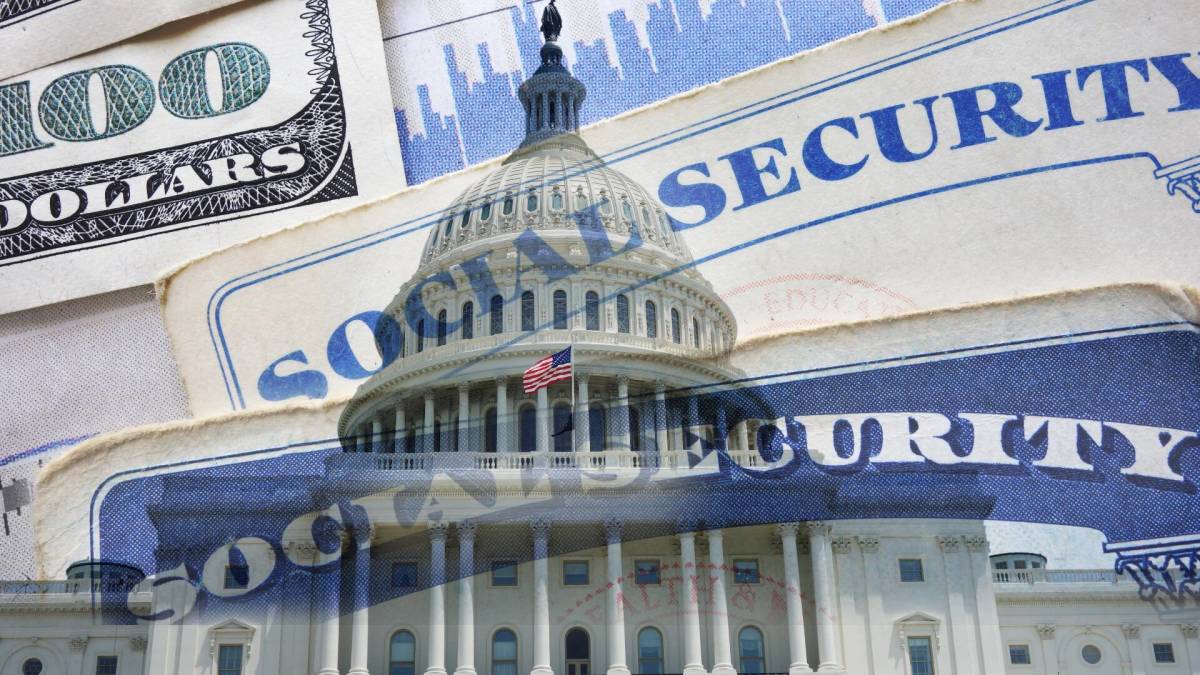AARP has blunt warning for Americans on Social Security
Among the many concerns people preparing for retirement often express are worries about the fiscal strength of the Social Security program. That's because — without congressional action — Social Security's Old-Age and Survivors Insurance (OASI) trust fund is only projected to be able to pay 100% of ...

Among the many concerns people preparing for retirement often express are worries about the fiscal strength of the Social Security program.
That's because — without congressional action — Social Security's Old-Age and Survivors Insurance (OASI) trust fund is only projected to be able to pay 100% of recipients' total scheduled monthly benefits until 2033.
"At that time, the fund’s reserves will become depleted and continuing program income will be sufficient to pay 77% of total scheduled benefits," according to the Social Security Administration (SSA).
Related: Redfin predicts major mortgage rate pivot
For obvious reasons, a sudden 23% cut to one's Social Security monthly paycheck would significantly disrupt a household's financial plans.
But those planning for how Social Security income will contribute to their retirement finances have other concerns as well.
A big one of those is the question about what age to begin receiving Social Security benefits.
AARP suggests when to take Social Security
Bestselling personal finance author Suze Orman, writing for the AARP about retirement finances, clarifies her view that one should rarely begin taking Social Security at age 62, the earliest age at which one can elect to receive benefits.
"That’s especially true if you’re single or the higher earner in your marriage," Orman wrote. "If you start taking it at 62, your monthly payout will be 25 to 30 percent less than what you would get by waiting until your full retirement age (66 or 67, depending on the year you were born)."
"Plus, if you take Social Security early and you die before your spouse, his or her survivors benefit will be lower, too," she added.
Orman suggests waiting until age 70, for a very important reason that involves a significant amount of money over the long term.
"Every year you wait between your normal retirement age and 70, Social Security will add a guaranteed 8 percent to your eventual monthly payout," she wrote.
"I want to make sure you didn’t glide by what I just said: 8 percent. Guaranteed," Orman emphasized. "Right now you’re lucky to find a bank account that pays 2 percent annually. The deal you get from Social Security if you wait is one of the best risk-free ways to boost your later-life income."
AARP explains how to make delaying Social Security work
- To delay receiving Social Security until age 70, you could begin living off 401(k) or IRA savings in your 60s.
- But keep in mind that the longer retirement savings remain untouched, the more time they have to grow and the fewer years they will need to support you.
- If you withdraw from retirement savings in your 60s, the goal should be to keep withdrawals as low as possible.
- Extending work by three to six months and delaying Social Security is equivalent to saving one more percentage point in retirement accounts over 30 years.
- Saving more is beneficial, but delaying retirement and the use of savings can strengthen long-term financial security.
- If you enjoy your job, consider adding or refining skills to remain a valued employee through your 60s.
- If continuing your current job is not feasible, explore less demanding positions that provide enough income in your 60s to cover most living costs.
Changes to Social Security with new legislation
When Social Security was first introduced in 1935, benefits were completely tax-free, Orman explained.
In 1983, Congress changed the rules so that up to half of those benefits could be taxed, and a decade later in 1993, the taxable portion was increased to as much as 85%.
The income thresholds that determine whether benefits are taxed have remained unchanged since then, which means that over time more retirees are subject to taxation — even those with relatively modest additional income from pensions, savings accounts, or part-time jobs.
More on personal finance:
- Dave Ramsey warns Americans on critical Medicare mistake to avoid
- Finance author sends strong message on housing costs
- Scott Galloway explains his views on retirement, Social Security
The One Big Beautiful Bill Act that became law in 2025 makes lower federal income tax rates, that were supposed to expire in 2025, permanent.
"The higher standard deduction from 2017 is also made permanent," Orman wrote. "For 2025, the standard deduction is $15,750 for single filers, and $31,500 for married couples filing jointly. This deduction will now be adjusted annually for inflation. I love that."
Important provisions of the OBBBA for Social Security recipients
- The One Big Beautiful Bill Act did not change the taxation of Social Security itself, but it introduced an extra deduction for older taxpayers.
- Starting this year, anyone age 65 or older can claim a $6,000 income deduction, even if they haven’t begun collecting Social Security.
- This new deduction is completely separate from Social Security — it applies to taxable income in general.
- In addition, existing age-based deductions remain in place: $2,000 for single filers and $1,600 per spouse for married couples filing jointly.
- Couples where both spouses are 65 or older can claim an extra $12,000 deduction, on top of the $3,200 already allowed.
- These deductions can be used whether you take the standard deduction or itemize your taxes.
- To qualify for the full $6,000 deduction, your Modified Adjusted Gross Income (MAGI) must be under $75,000 if single or $150,000 if married filing jointly.
- The deduction gradually phases out at a rate of 6 cents for every dollar above those limits.
- It disappears entirely once income reaches $175,000 for singles or $250,000 for couples.
- For example, a single filer with $100,000 MAGI is $25,000 over the threshold, so their deduction is reduced by $1,500, leaving them with $4,500 instead of $6,000.
- This deduction is temporary and will be available for tax years 2025 through 2028, ending in 2029 unless Congress extends it.
- The regular age-based deductions of $2,000 and $1,600 are permanent and unaffected by this law.
- Social Security benefits remain taxable, and the new deduction is simply a short-term tax break for people over 65 with moderate income levels.
Related: Dave Ramsey, AARP warn Americans on Social Security
What's Your Reaction?




















































